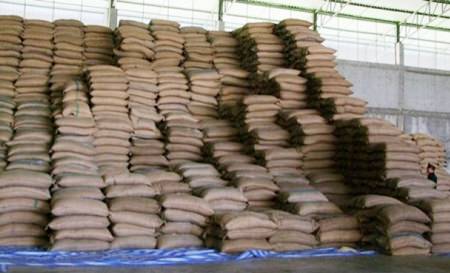One-third of Thailand’s farmers pointed at corruption as the cause of the government’s failure to pay for the rice they sold under the state pledging scheme, according to an academic survey released last week.
The National Institute of Development Administration (NIDA) conducted the survey on “Farmers’ Perspectives on Rice Resolutions” among 1,250 sample respondents nationwide.

The Yingluck Shinawatra administration launched the rice subsidy programme two years ago and pledged to pay farmers Bt15,000 per tonne of rice.
Questioned on the reasons for the government’s failure to pay for their rice, nearly one of three (31.13 percent) farmers pinpointed corruption, 18.42 percent blamed money shortages due to losses in rice trading, 18.36 percent said the government lacked liquidity after its failure to sell the rice, 15.03 percent said the caretaker government was restricted from borrowing from financial institutions, and 12.89 percent cited other reasons such as protesters’ obstructing the government’s operations, the government’s administrative failure and its irresponsibility.
Who should be responsible for the government’s failure on overdue payments?
The highest percentage of 35.92 named the caretaker prime minister, followed by the Cabinet at 32.33 percent, the commerce minister at 16.58 percent, the anti-government People’s Democratic Reform Committee at 9.85 percent, the Bank of Agriculture and Agricultural Cooperatives at 3.50 percent, and other elements such as the Election Commission, the Agriculture Ministry and the new government at 0.14 percent.
The majority of farmers, 36.72 percent, asked the government to urgently sell rice from the state stockpiles to earn money to pay them; 28.88 percent said the government should borrow to pay them; 22.64 percent called on the government to resign; 3.60 percent asked that their rice be returned; and 4.08 percent offered other proposals including action against protesters who have obstructed the government’s administration and cooperation among all related agencies to assist farmers.
Regarding the rice pledging scheme, 43.04 percent said it should be suspended, 34.4 percent wanted the programme to continue with paddy price adjusted in accord with the global price, 18.24 percent preferred the scheme to continue without any change, and 1.12 percent said it should continue but the management and checking systems should be improved, or it could be replaced with a rice guarantee programme.




